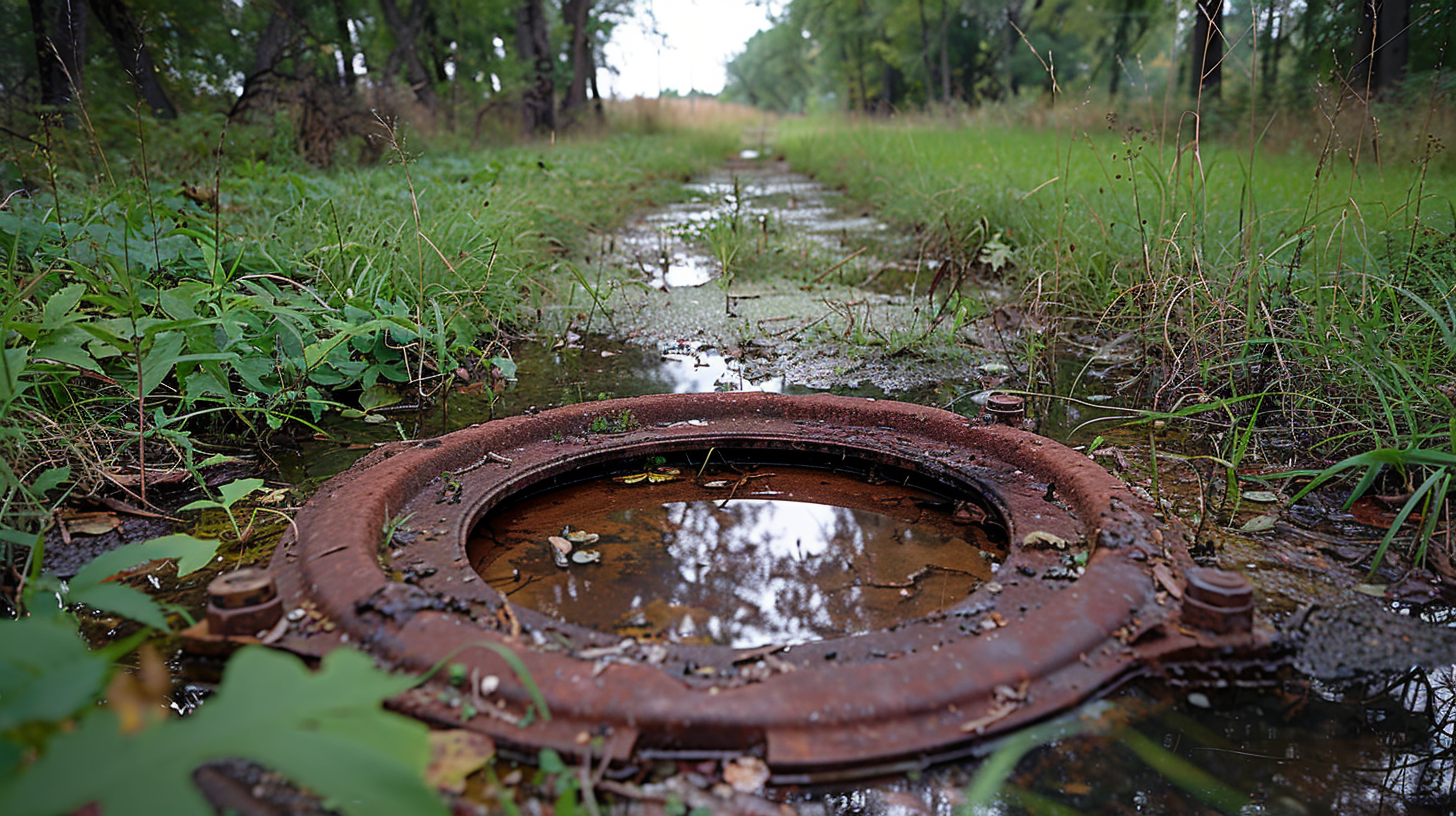Key points
Contents
- 1 Key points
- 2 Why Following the Law Matters for Septic Systems
- 2.1 The Rules from Washington D.C.
- 2.2 State and Local Laws
- 2.3 Don’t Install Without Permission
- 2.4 Keep Up Your System
- 2.5 Follow Environmental Guidelines
- 2.6 Dangers to Nature and People
- 2.7 Breaking the Law Can Cost You
- 2.8 Fines Can Bite
- 2.9 Paying for Your Mistakes
- 2.10 Courts Can Get Involved
- 2.11 Small Crimes Are Still Crimes
- 2.12 Big Trouble for Big Mistakes
- 2.13 Licenses Can Vanish
- 2.14 Checks are Musts
- 3 Residential Violations and Penalties
- 4 Commercial Rules and Their Consequences
- 5 Understanding Regulatory Compliance for Septic Systems
- 6 Avoiding Penalties through Diligent Compliance
- 7 Septic System Installation and Maintenance Best Practices
- 8 Understanding How to Follow Rules and Protect the Environment
- 9 Agencies and Resources for Septic System Rules
- 10 Frequently Asked Questions (FAQ)
• Monetary Penalties: If someone has an illegal septic system, they could be hit with big fines. These fines are meant to prevent people from breaking the rules, and they can change a lot depending on where you live and how bad the violation is.
• Mandatory Fixes: On top of fines, folks might have to fix things up. This could mean making their illegal system follow the current rules, or they might need to get a whole new system that’s by the book.
• Legal Trouble: In bad situations, like when the illegal septic system hurts the environment, the people who put it in or take care of it could end up facing legal charges. This can mean jail time or having to do work in the community.
Why Following the Law Matters for Septic Systems
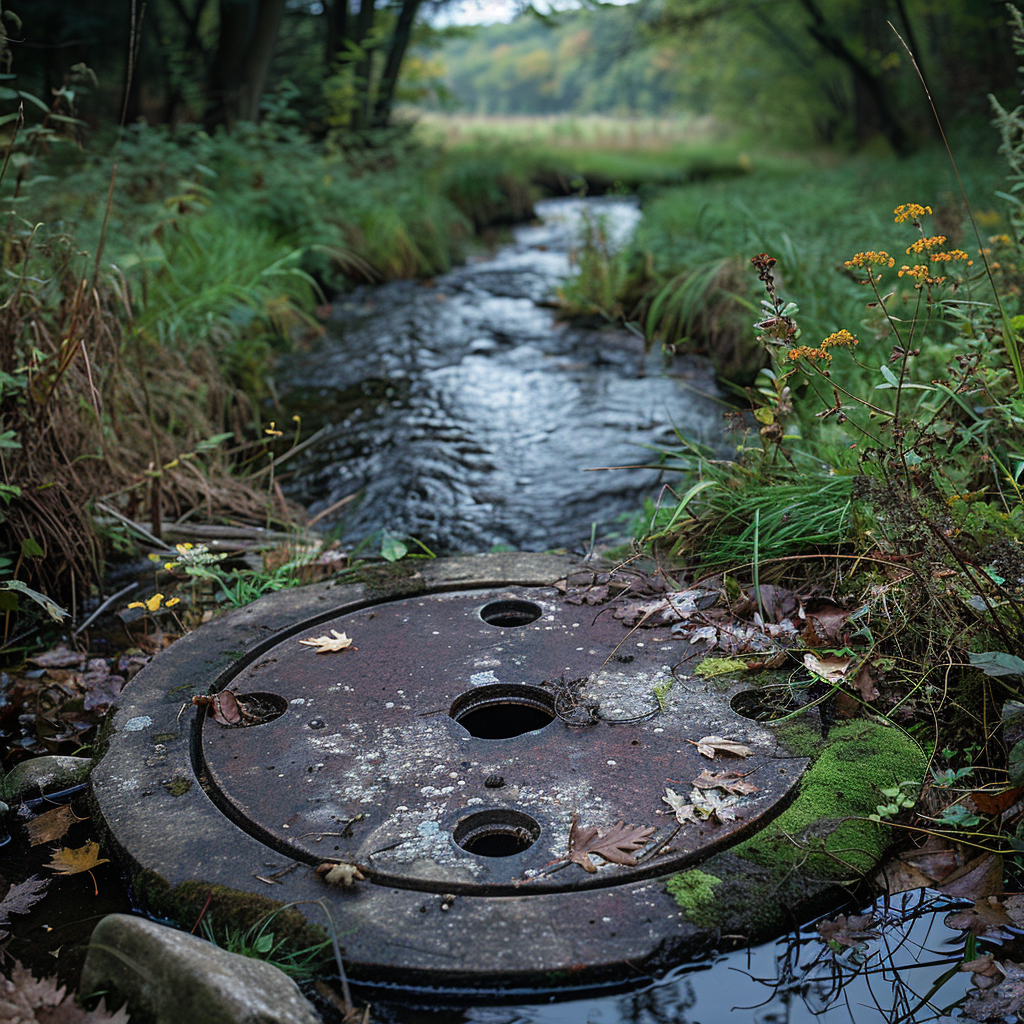
Following legal rules when installing and maintaining septic systems is crucial. Not doing so can lead to big legal and environmental problems. Laws are there to stop these complex systems from becoming pollution sources if they’re not set up or maintained properly.
If you ignore these laws, you can get fines or face tougher legal actions, depending on where you live and how serious your mistake is. These punishments encourage folks to do things right, which means the septic system lasts longer and keeps communities and nature safe.
There’s a bunch of different rules about septic systems, from the national level down to your local town. They’re all about keeping people and the planet safe.
The Rules from Washington D.C.
In the U.S., the EPA has tips for septic systems, basically onboard ways to deal with wastewater. The Clean Water Act isn’t super direct, but it tells states what they should aim for. The EPA’s advice is like the base that local places build their own rules on top of.
State and Local Laws
States create their own rules, taking cues from the EPA, and adjusting them for local conditions. Usually, it’s health departments or environmental agencies calling the shots on septic systems—checking the ground before you install one, deciding where to put it, and saying how often it needs to be checked out.
Towns can have stricter laws than states, especially if it’s a busy area or a delicate natural spot. They want to make sure people’s health and the environment aren’t put at risk. All these layers of laws help keep septic systems in check. If you don’t follow them, you might get fines, have to fix things up, or even face time in court for the worst screw-ups.
Not following the law could mean you need to pay for upgrades or face big money penalties. And if your illegal system is really bad for health or nature, you might be in an even bigger mess, like losing some of your property rights or ending up in criminal court. It’s best to know what the laws are so you can save yourself from these costs and help the environment too.
Don’t Install Without Permission
Putting in a septic system without the okay from the authorities isn’t just breaking local rules; it can also land you in hot water. If your installation is done wrong or in the wrong place, it could mess up important things like water and soil that we all depend on. Always make sure to follow the codes and grab a permit first.
Keep Up Your System
To avoid trouble and keep your system working right, you have to take care of it. If you slack off or use it wrong, you could block it up, cause leaks, or even make it fail completely. That’s all against the law and could hurt nature or hit you with serious fines. Do regular check-ups and pumping, and be careful what you toss in there.
Follow Environmental Guidelines
Your septic system has to meet environmental standards so it doesn’t trash our surroundings. If you don’t meet these standards—like sending too many nutrients or germs into waterways—you’re asking for trouble. Problems usually come from not designing your system right for your land or overloading it. To avoid messing up, get your system checked regularly and stay clued in on waste rules.
Illegal septic systems can cause issues way beyond fines or fixes. They can affect everybody around by harming health or the environment.
Dangers to Nature and People
If your septic system breaks the rules, it could poison our drinking water or damage natural habitats nearby. Bad sewage treatment can spread diseases and seriously harm residents’ quality of life.
Breaking the Law Can Cost You
Own an illegal septic system? It’s just a matter of time before the law catches up with you. You might have to fork out cash, swap out parts of your system, or—depending on how serious your oops are—even defend yourself in court.
Illegal systems can also lead to paying government fines. You could be told to pay back anyone who got hurt by your mistakes or foot the bill for fixing damaged nature—neither will be cheap. Courts might tell you to sort your system out straight away. Ignore that, and you’ll find yourself deeper in trouble.
Fines Can Bite
Bend the rules on septic systems, and you could be hit with steep fines. How much depends on how badly and for how long you’ve messed up. There’s a list somewhere telling you how much they can make you pay—it’s there to scare people off from breaking the law.
Paying for Your Mistakes
You might not only owe fines but also have to cover the cost of any harm you caused. Paying back people hurts, but fixing broken ecosystems hurts your wallet more. It reminds you that doing things wrong isn’t cheap.
Courts Can Get Involved
If there’s ongoing damage because of a bad septic system, courts might step in with orders telling the owners to fix it right now. Again, not listening will just get you more penalties.
Turn a blind eye to septic rules? Be ready for possible criminal charges too—they can go from smaller crimes (misdemeanors) to big ones (felonies), all depending on how bad your actions are.
Small Crimes Are Still Crimes
Misdemeanors happen when you bend septic rules but don’t cause a disaster—like setting one up without papers. The law might still slap you with fines, keep an eye on you (probation), or even send you to jail for a little while—all good reasons to do things by the book.
Big Trouble for Big Mistakes
If you’ve really harmed the environment or put people’s health in danger with your septic system violations, expect felony charges coming your way. Being found guilty of a felony means facing long jail time and coughing up loads of money. If someone’s been dumping tons of waste illegally or ruining water or land with an unpermitted system, it shows how hard officials work to keep our world clean and safe.
An illegal system gets spotted? Here come all the official steps to deal with it—making sure everyone plays by the rulebook so that nothing gets ruined.
Licenses Can Vanish
A key move for the people in charge is to take away permits for septic systems that go against green laws—or not let them start at all if they’re going to put us all at risk.
Checks are Musts
To stick to rules, there have to be regular inspections and watching over by folks who know what they’re doing. The plan here is sorting out small problems before they blow up into something uglier.
Residential Violations and Penalties
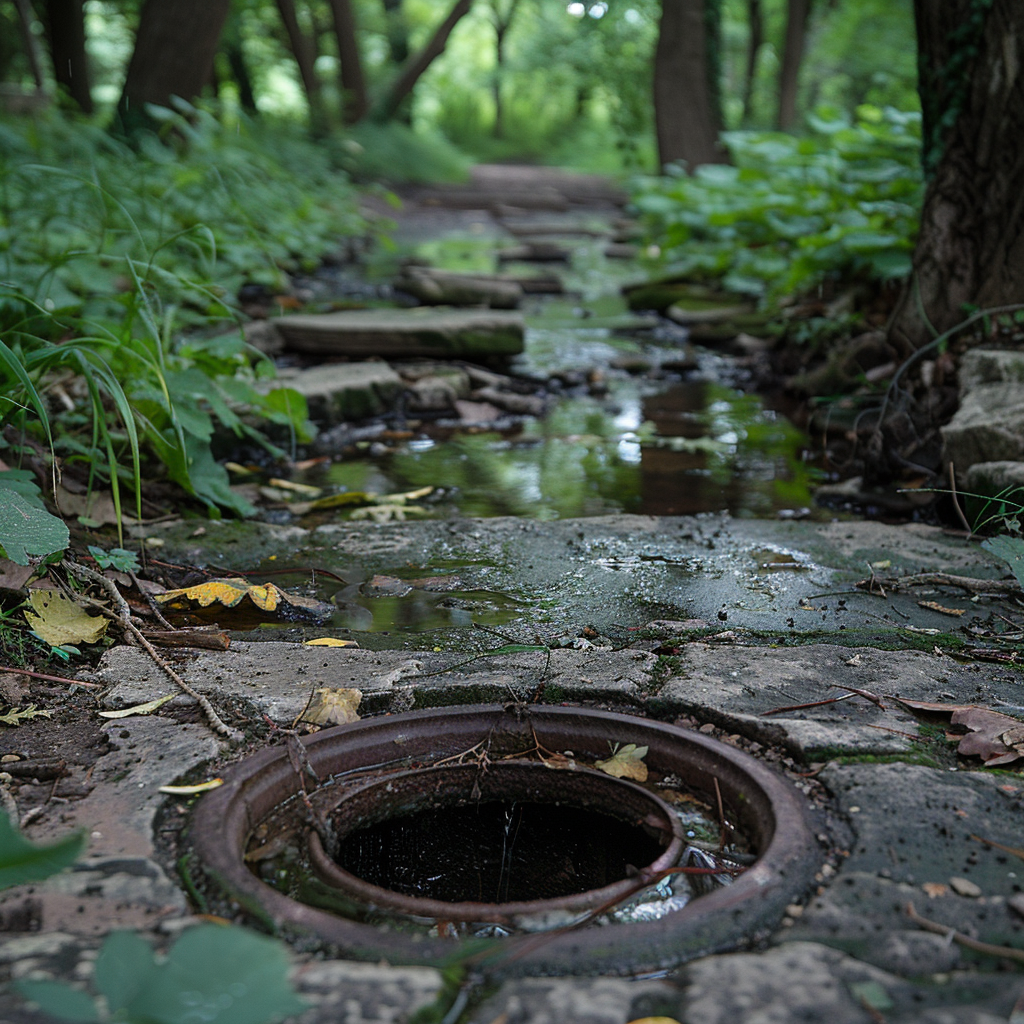
If a house has an illegal septic system, the local health department often steps in. Such systems can create serious health and environmental problems when they don’t meet standards. Penalties vary, including fines or having to install a new system. In Florida, one homeowner was hit with a fine of over $24,000 on top of repair costs; meanwhile, California might slap you with fines reaching $15,000 per day for breaking the rules. Along with fines, homeowners could run into other legal troubles.
Commercial Rules and Their Consequences
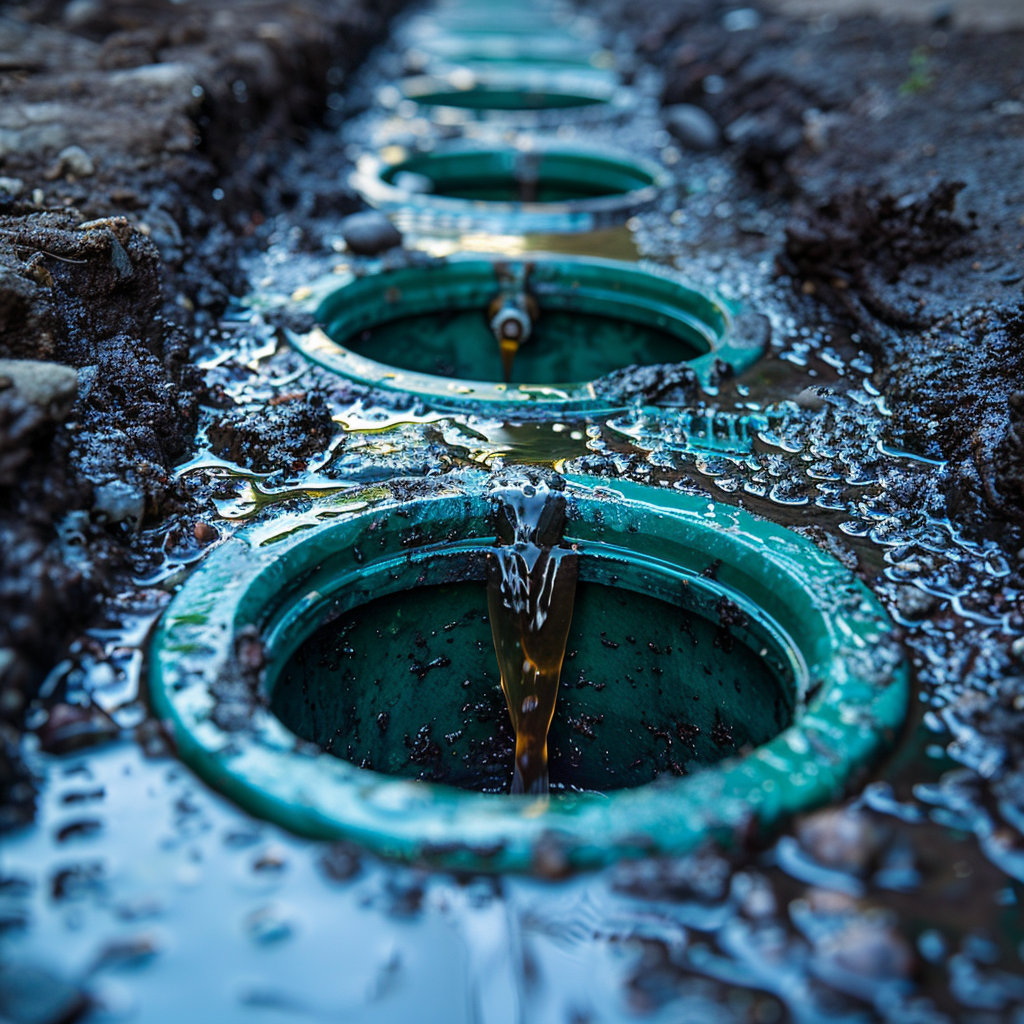
When companies have illegal septic systems, they can get hit with bigger fines than homeowners. For instance, a Massachusetts diner had to pay $80,000 because they didn’t handle their sewage right. Besides just fines, sometimes businesses get shut down until they fix the issues. The strong response from regulators to commercial problems shows how serious they are about keeping people safe and protecting the environment.
We can look at real examples to see how these rules actually work. Take this Michigan farmer who’s wrong setup let pollution into a nearby stream. He got slapped with a $10,000 fine and couldn’t farm until he fixed it. Or consider an RV park in Oregon that racked up more than half a million dollars in fines for using a septic system without permission for years. Stories like these make it clear that enforcing the law is important to keep folks healthy and the earth clean.
Understanding Regulatory Compliance for Septic Systems
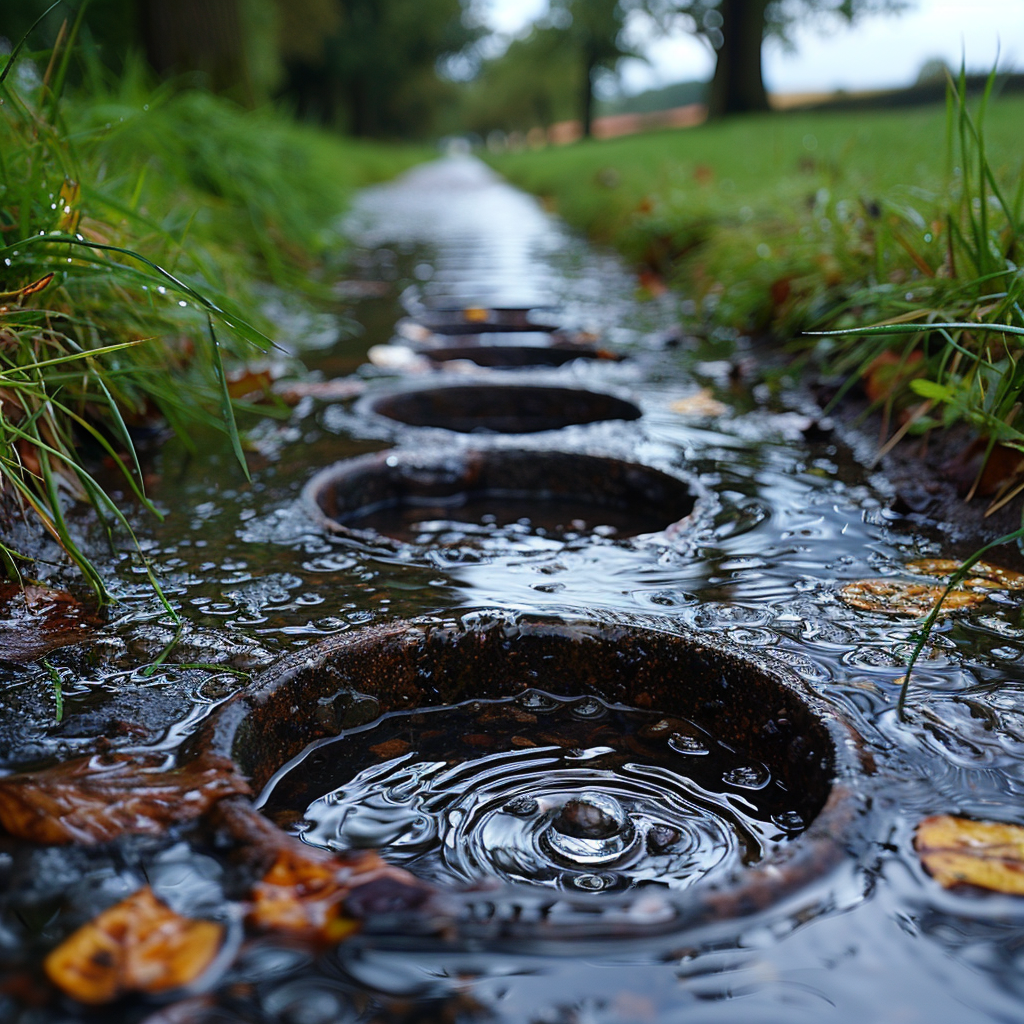
It’s important to know about and follow the laws for septic systems to avoid getting into trouble. The government has tough rules to prevent damage to our health and the environment. This can happen when septic systems don’t work properly and release harmful germs and chemicals into the ground and water. If you don’t keep your system legal, you could face penalties from paying money to being forced to fix your system, or even facing time in court for really bad situations.
Avoiding Penalties through Diligent Compliance
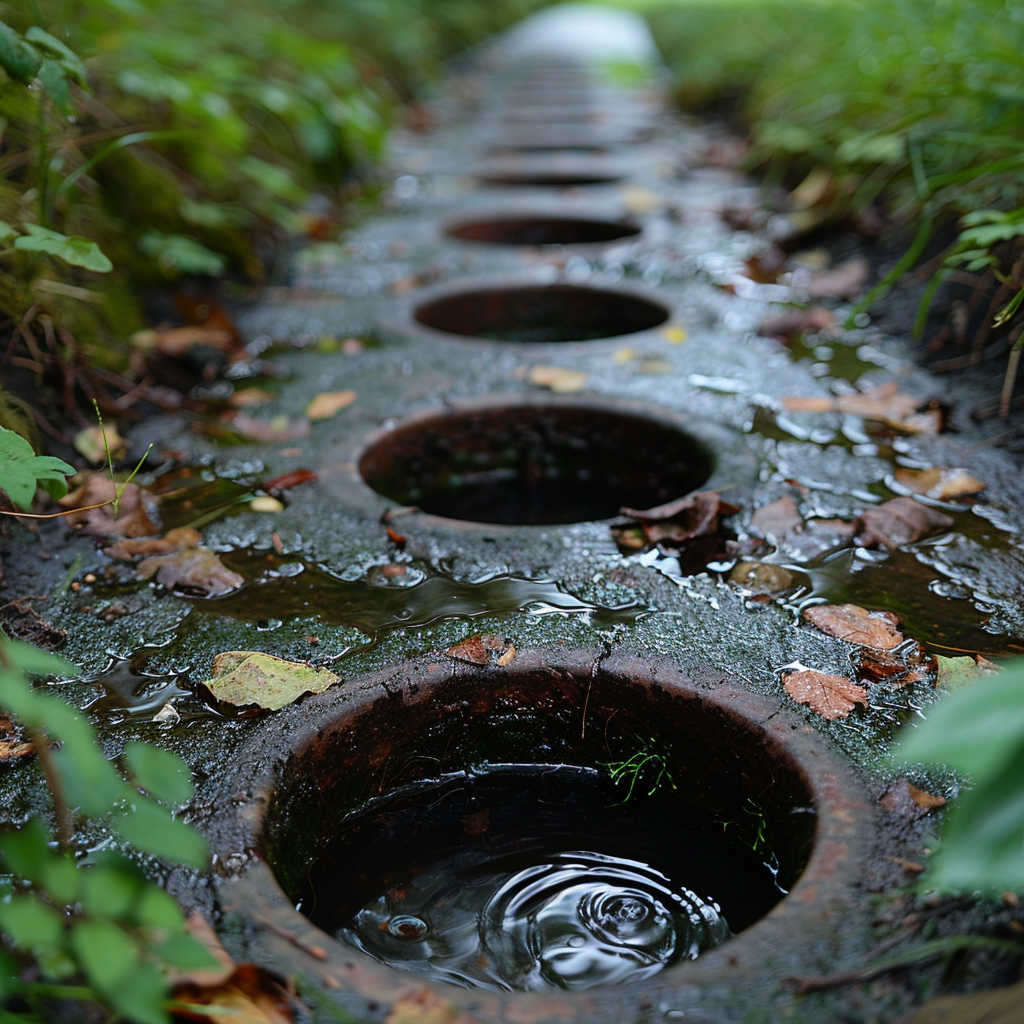
It’s vital to follow the rules when installing and maintaining a septic system if you don’t want to get hit with fines. That means you need to get the right permits before you start and stick to the local construction and environmental laws for as long as you have the system. Experts usually suggest having your system checked and pumped every three to five years. Doing this will help your system work right and keep you out of trouble with the law.
Septic System Installation and Maintenance Best Practices
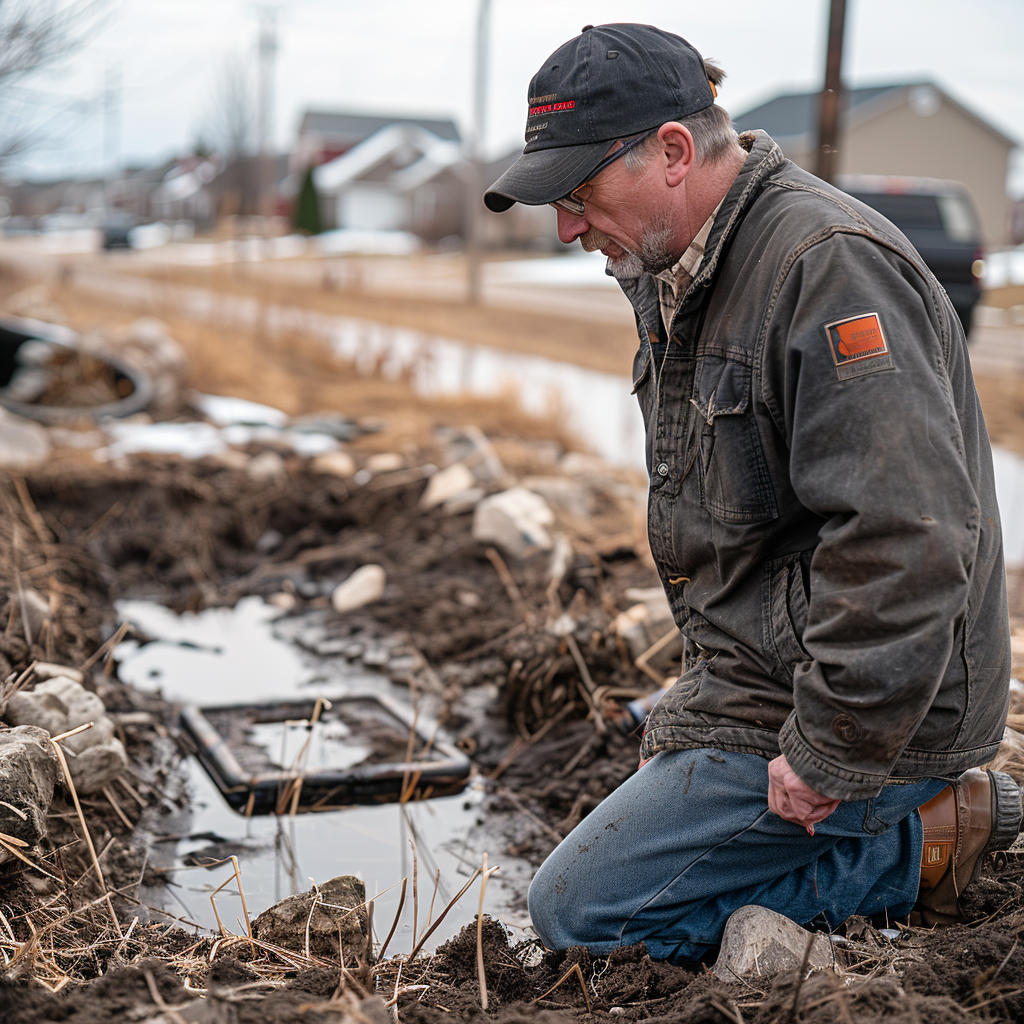
When you put in and look after a septic system the right way, you’ll stick to the rules and make your system last longer and work better. First off, pick a good installer who knows how to design and place your system based on the soil type and how much you’ll use it. After it’s in, keep it up by not throwing bad stuff down the drain, cutting down on wasted water, and keeping things like cars away from the drain field. These actions are key if you want to take good care of your septic system.
Understanding How to Follow Rules and Protect the Environment

If you want to keep your septic system legal and kind to the earth, you need to tap into what’s offered by your local health department, environmental groups, and companies that know all about septic systems. They can give you the latest rules, tips on keeping things running smoothly, and guidance for fixing old or broken-down systems. Using these experts means you won’t have to worry about breaking laws or harming nature with your septic setup.
Agencies and Resources for Septic System Rules
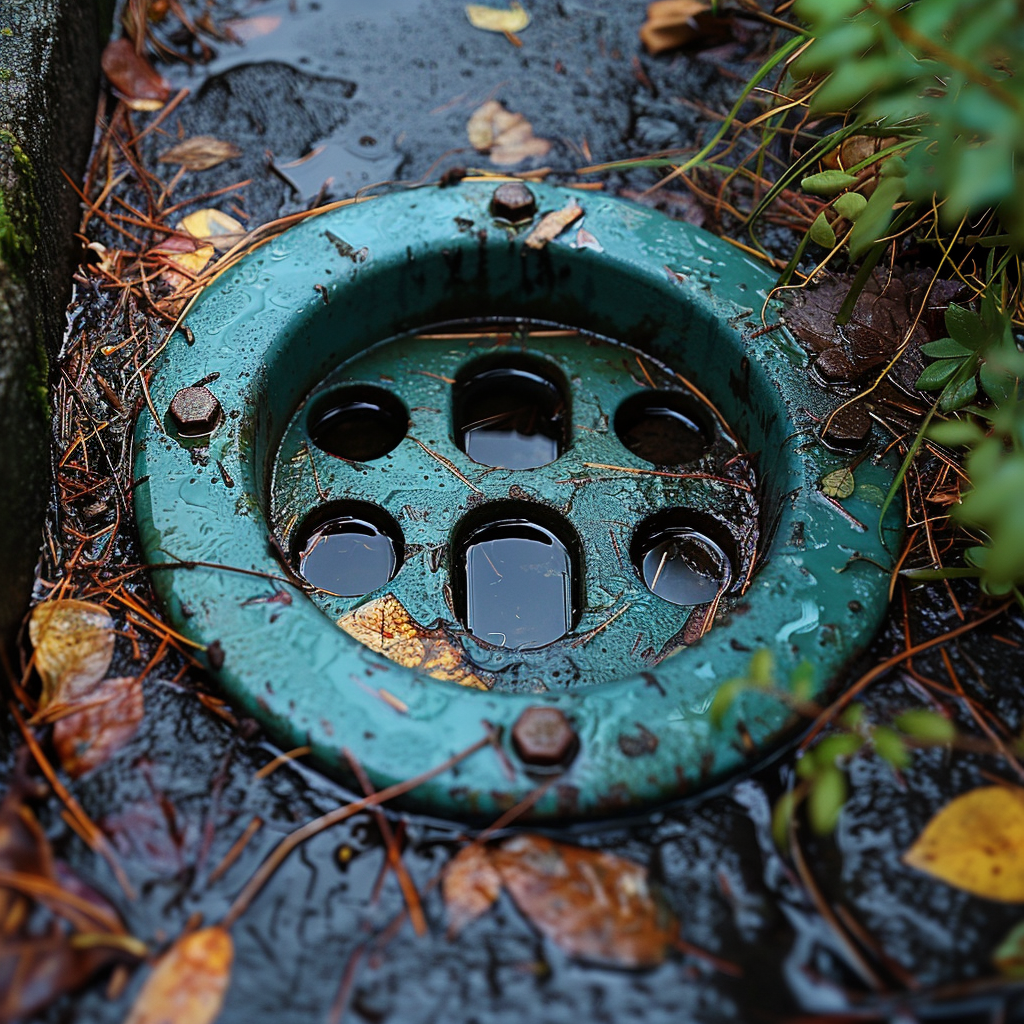
To dodge penalties or legal trouble, know where to turn for help with septic system rules:
| Agency/Resource | What They Do | How To Contact |
|---|---|---|
| Environmental Protection Agency (EPA) | Gives info on septic systems and environment rules. | Website: www.epa.gov |
| Local Health Department | The go-to for permits and local septic laws. | Changes with your place |
| National Environmental Services Center (NESC) | Gives expert advice and info on wastewater options. | Phone: (800) 624-8301 Website: www.nesc.wvu.edu |
Frequently Asked Questions (FAQ)
What fines might a property owner face for an illegal septic system in Florida?
Property owners in Florida could incur substantial fines for operating an illegal septic system. These fines are designed to deter noncompliance and ensure that environmental and health standards are maintained. The exact fine amount is dictated by the specific ordinance violated and the severity of the infraction, which is determined by the Florida State Department of Environmental Protection (DEP) or county health departments. Moreover, ongoing violations may lead to escalating fines, and unexpected surprises in costs can arise if the issue leads to environmental harm.
Are there criminal charges associated with unauthorized septic system installations?
Yes, there can be criminal charges filed against individuals who perform unauthorized septic system installations. Depending on the severity of the violation, these charges might range from misdemeanors to felonies. It’s critical that installation adheres to Florida’s Onsite Septic System Regulations to avoid such legal repercussions. Owners found complicit may face time in court and potential sentencing, reflecting the seriousness of safeguarding public health and preserving ecosystems.
Can noncompliance with septic regulations result in mandatory remediation costs?
Absolutely, if a property owner is found to be noncompliant with septic system regulations, they can be ordered to cover all mandatory restitution and remediation costs. This could include expenses for clean-up service, ecological restoration, or system upgrades to meet current standards set by entities like the DEP or local authorities. Property owners should strive for proactive compliance to avoid these potentially hefty expenses.
What does injunction mean in terms of septic system noncompliance?
An injunction in the context of septic system noncompliance is a legal order by a court directing an owner to cease the offending activities immediately and resolve the violations comprehensively. If an injunction is ignored, it can lead to more severe penalties or even contempt of court charges, adding another layer of consequence for those ignoring septic system compliance regulations.
How does Florida enforce septic tank regulations regarding sewage treatment and disposal?
Florida enforces septic tank regulations through its state departments like the DEP and Title 29 Chapter 381 Public Health Section under the Florida Department of Health. They conduct periodic inspections, review systems’ management practices, and establish community partnerships to educate residents about stewardship of onsite sewage treatment and disposal systems (OSTDS). Noncompliant systems detected during inspections or as a result of complaints can trigger enforcement actions.
Can septic system violations lead to permit denial or revocation in Florida?
Indeed, one of the consequences of violating septiс tank regulations in Florida is either the denial or revocation of permits necessary for the operation and perhaps construction of such systems. Florida DOH’s Environmental Health division can withdraw permits as a punitive action against noncompliant property owners, thereby halting any further use or development until proper compliance is achieved.
Is there a risk of property liens due to illegal septic system operation in Florida?
In extreme cases where fines or mandated remediation costs remain unpaid, the state or local government might impose a lien on the violator’s property. A lien serves as a legal claim against a property until debts arising from noncompliance with septic regulations are settled. This underscores the importance for homeowners to observe all necessary septic system guidelines and avoid unnecessary legal entanglements.
Do polyethylene septic tanks have special compliance concerns in Florida?
Polyethylene septic tanks must meet specific standards for use and durability as part of broader septic system regulations in Florida. Compliance concerns typically involve proper installation per manufacturer guidelines and meeting state and county health department requirements for wastewater disposal systems. Contractors handling such installations must keep abreast with guidance docs and ensure all details align with regulatory expectations to avoid penalties.
Can failing a mandatory inspection cause legal issues surrounding my septic tank system?
Yes, failure to pass a mandatory inspection can indeed trigger legal issues. Mandatory inspections are part of the oversight by relevant authorities to ensure that septic tank systems are up to par with health and safety standards. A failed inspection can lead to a series of enforcement actions, including orders to correct, fines, and possibly more intrusive judicial intervention if compliance isn’t attained promptly.
What penalties apply for improper disposal of waste from septic tank systems?
Improper disposal of waste from septic tank systems can attract hefty penalties due to the associated risks to public health and contamination of ecosystems, particularly surface waters. Penalties might include fines, enforced cleanup operations at the owner’s expense, corrective orders by state health departments or environmental agencies, and under serious circumstances, criminal charges if knowingly mishandled.

I’m Tim Robberts, a seasoned wastewater treatment & septic system expert with over 40 years of experience in the field. My career began as a septic tank installer, and I quickly gained a reputation for my attention to detail and commitment to excellence. Over the years, I’ve honed my skills in designing, installing, and maintaining septic systems for residential and commercial properties.
